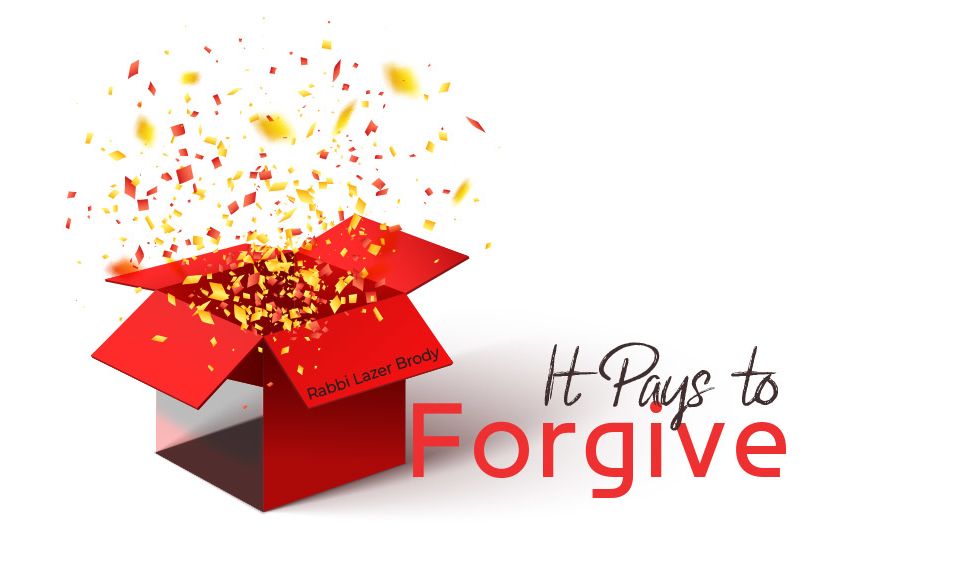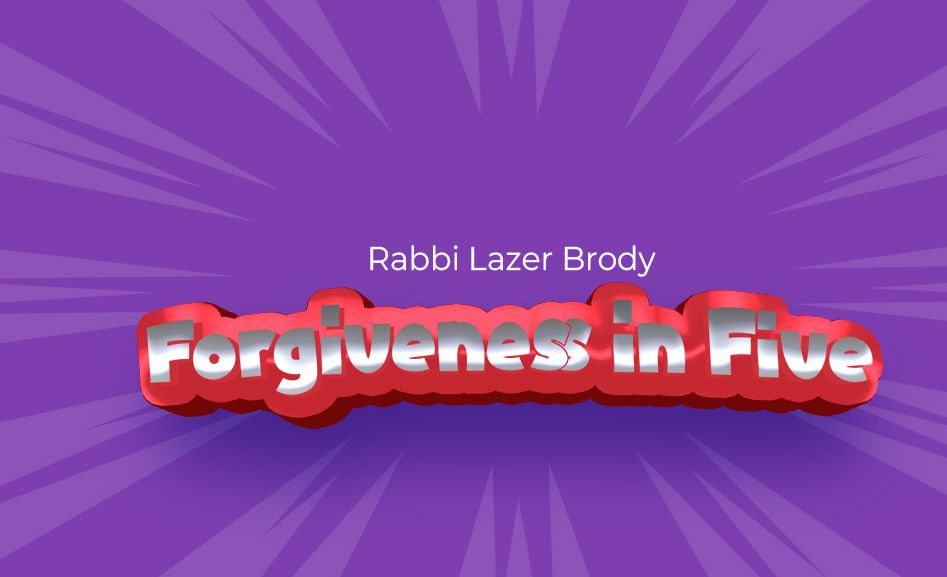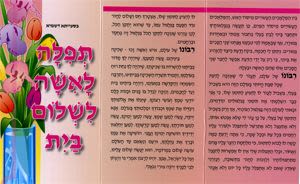The yahrtzeit (date of passing) of Rabbi Yisroel Meir Kagan, the famed “Chofetz Chaim” of blessed and saintly memory, is on 24 Elul. The Chofetz Chaim was a spiritual giant and one of Judaism’s brightest shining lights. The Chofetz Chaim teaches that it is preferable for one to give up all earthly possessions – house, furniture, clothes, and money – rather than violate one commandment of Torah. The damage that one single sin does to a person’s soul, in addition to the destruction that the sin causes in the spiritual world, dwarfs a material loss of even multi-million dollar proportions.
In light of the above, should we all start tearing our hair out? Who hasn’t listened to a word of gossip all year long? Hearing or reading loshon hora (evil tongue, i.e. gossip and slander) involves the simultaneous violation of a dozen or more mitzvot; writing and speaking it is even worse. Making an unauthorized phone call from the office or factory involves gezel, tantamount to stealing, another serious violation. Who hasn’t inadvertently taken home a pencil or a few sheets of paper from the office? According to our sages, such a violation is serious enough to warrant an additional reincarnation (gilgul b’avon shaveh pruta).
What about the big transgressions, like a breach in family purity, breaking the Sabbath, or harboring hate in one’s heart? When taking stock of a year’s accumulated misdeeds, one may easily fall into despair, and say that Judaism is hopeless, G-d forbid, for who can possibly make teshuva (repent) properly?
There are two ways to gain forgiveness of all our sins before the day of the fateful trial on Rosh Hashanah:
- The long, hard way is to do some arduous soul-searching, while going down the entire list of all 613 commandments and writing down which commandments we slipped on. Then, for each transgression, we have to apply the four stages of teshuva – confession to Hashem, remorse, cessation of sin, and commitment to do better. For a person who doesn’t spend at least an hour a day all year long in soul-searching and self-inventory, such complete teshuva is a difficult, if not unachievable task.
- The guaranteed short cut is presented to us by our Talmudic sages as a lifesaver from a harsh verdict. Rava says (tractate Rosh Hashanah, 17a), “One who forgives an affront is forgiven all of one’s sins.” This is a carte-blanche, signed check from our greatest sages (an identical idea can be found in the Zohar, see Midrash Ruth – Rav Cruspidai’s speech), promising us that if we forgive those who insult as – whether accidentally or willfully – we shall be forgiven all our sins.
In light of the above, when Hashem arranges for someone to insult or humiliate us, especially in the month of Elul, it’s like winning the Irish lottery. But, in order to cash in on the benefits, we must not lose our temper or harbor a grudge in any way. Nothing can cleanse and purify the soul so fast like a juicy insult. The bigger the embarrassment, the better the absolution.
The wonderful thing about verbal abuse, insult, and embarrassment is that Hashem uses them as a substitute for the harshest punishments imaginable, such as death and poverty. Why? The Gemara says that suffering verbal abuse is tantamount to suffering death. Forgiving a person that attacks our dignity is no easy task.
When a person transgresses, G-d forbid, he is sinning against Hashem. As I’ve mentioned several times previously, Hashem governs the world according to the ATFAT principle (a turn for a turn – see Chapter Six of The Trail to Tranquility). Therefore, if one is willing to forgive those who sin against him, Hashem is more than willing to forgive that person’s sins against Him. The mathematics are simple – forgive and be forgiven.
Don’t be silly enough to think that you’re doing a friend or a loved one a favor by insulting them. Verbal abuse, insult, and embarrassment are very, very serious crimes, that not even teshuva can cleanse, unless one first begs forgiveness from the victim.
It pays to forgive.














Tell us what you think!
Thank you for your comment!
It will be published after approval by the Editor.